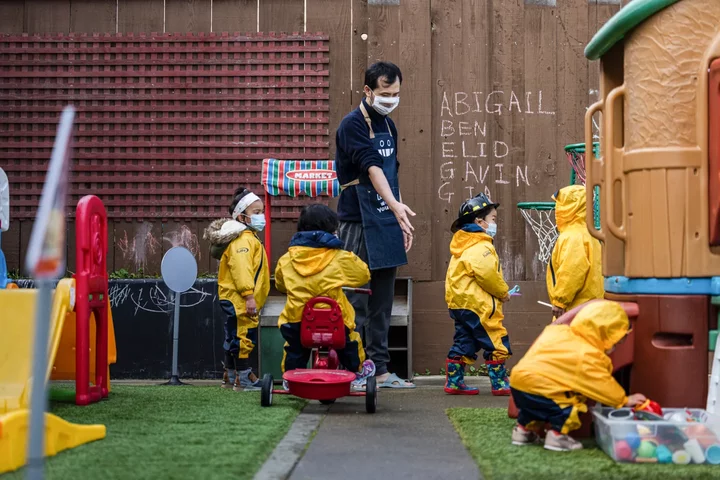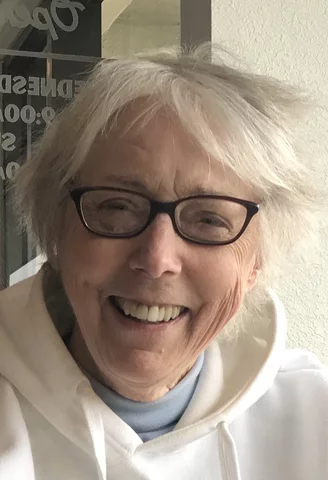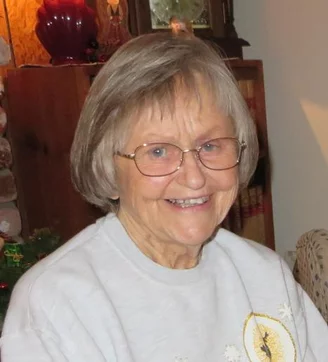Arcata Police Name 26- 24-Year-Old McK Man as Suspect in July 2 Valley West Homicide
LoCO Staff / Tuesday, July 11, 2023 @ 3:35 p.m. / Crime
PREVIOUSLY:
###
Press release from the Arcata Police Department:
On July 2, 2023, at 7:20am, the Arcata Police Department responded to the 5000 block of Boyd Road, for a man down in the roadway. Upon arrival, officers located a male subject, deceased of an apparent gunshot wound. The decedent has been identified as 36-year-old Joshua Paul Gephart, who was recently living in the Arcata area.
APD Detectives have secured an arrest warrant for PC 187(a)- Homicide, for 24-year-old Gregory Nelson Mattox, of McKinleyville in connection with the homicide.
Gregory Nelson Mattox is described as a white male adult, approximately 5 foot 11 inches tall, thin build, with dark hair and blue eyes. He was last seen wearing a black hooded sweatshirt and tan pants. Mattox may be in possession of a handgun and is considered armed and dangerous.
APD asks if you see Mattox, immediately call the Arcata Police at 707-822-2424 or call 9-1-1. This case is still under investigation and anyone with information is asked to contact Detective Johnson at 707-822-2424. More information will be released when available and appropriate.
BOOKED
Yesterday: 6 felonies, 11 misdemeanors, 0 infractions
JUDGED
Humboldt County Superior Court Calendar: Today
CHP REPORTS
7480 Mm101 N Hum 74.80 (HM office): Assist with Construction
ELSEWHERE
RHBB: Hiller Road Quick-Build Project Underway in McKinleyville
Governor’s Office: California protects over 40K acres of agricultural land, supporting rural communities
Times-Standard : Got O+ blood? NCCBB looking for donations in blood shortage
County of Humboldt Meetings: Behavioral Health Board - SUD/Dual Recovery Committee - Sept. 11, 2025
Grand Jury Dings County Supervisors, Top Administration for Chaotic Information Management
Hank Sims / Tuesday, July 11, 2023 @ 1:06 p.m. / Local Government
Crossed wires. Photo by cottonbro studio via Pexels.
The latest report from the 2022-2023 Humboldt County Civil Grand Jury paints a not-so-pretty picture of the first floor of the Humboldt County Courthouse, where the Board of Supervisor, the County Administrative Office and the Office of the County Clerk Clerk of the Board — the latter two of which support the Board’s work — are quartered.
These offices are the head of the snake of county government. As the GJ notes, the Board of Supervisors is both the legislative and the executive head of the county. Supervisors not only decide how the county should spend an annual budget in the neighborhood of half a billion dollars, but also oversee the projects that they undertake with that half a billion.
So it’s not so good, in the opinion of the Grand Jury, that the firehose of information that comes into these offices isn’t adequately tagged and managed and forwarded to the appropriate inbox for action and/or information. The result, it alleges, is “poor direction, poor oversight and missed deadlines.”
One way this chaos manifests, according to the Grand Jury, is in the sometimes very slipshod and haphazard way in which various county-created advisory boards and commissions meet … or don’t. The Jury writes:
The Humboldt County Board of Supervisors is at the center of a complex “input” and “output” information flow, but there is no log or calendar of communication received or due to be received or sent systematically distinguishing information from action items. The BOS is, for example, unaware that several committees may only be meeting sporadically, may have vacancies, may lack diverse community representation, may not be submitting mandated advisory reports to the BOS, or may be inactive. The Audit Committee, Behavioral Health Board, and Disaster Council are cases in point.
What’s the problem with these cases in point? Well, for instance, the Disaster Council, which was instituted in 2015 and to which the Board of Supervisors appoints a member every year, appears not to have ever met since that date. The Audit Committee has met only three times in the last two years.
Why do we have committees and commissions and councils on the books that meet rarely or never? The GJ believes that the County has more or less forgotten that they exist, or hasn’t been able to unbury itself from the informational deluge long enough to get them going again.
“It appears the BOS has a reactive approach to County tasks instead of a proactive approach,” the GJ writes.
What’s the solution? The Grand Jury doesn’t care for the fact that the Board of Supervisors share clerks from the County Clerk’s office to help manage the info flow. Hire more clerks, the GJ says, and also assign each supervisor her or his own, dedicated clerk. Do that starting in January! Also, get those functionally inactive committees up and running again. Simple!
Elsewhere in their tour of the top offices, the Grand Jury finds that:
- There’s a general lack of representation from Humboldt’s eight federally recognized tribal entities in the Board’s advisory bodies. Get more tribal representation on those committees, please!
- The county should employ a full-time grant writer, so as to go after more grants.
Read the full Grand Jury report at this link.
###
PREVIOUS 2022-2023 GRAND JURY:
- ‘IT’S OK TO VOTE’: Grand Jury Issues Its First Report of This Cycle, Focused on Humboldt County Election Integrity
- In its Second Report of the Year, the Humboldt County Civil Grand Jury Tackles the ‘Dysfunctional’ State of Child Welfare Services in the County and the ‘Toxic’ Work Atmosphere Within the Department
- CONVERSATIONS: Civil Grand Jury Foreman John Heckel on the County’s Sorry State of Child Protective Services, Election Integrity, Becoming a Grand Juror and More
- CITY of MCKINLEYVILLE? It’s Time for Real Talk About Incorporation, Grand Jury Sez
- The Grand Jury Needs YOU! If You’re Interested in Local Government and Have Some Spare Time, You Belong on the Humboldt County Civil Grand Jury, Which is in Desperate Need of People Like You
- Civil Grand Jury Finds ‘Appalling and Dangerous Conditions’ at Humboldt County Animal Shelter
- HUMBOLDT HISTORY: The Life and Times of Jim Howard, a Civic Leader in 20th Century Eureka
- ‘Not Adequately Prepared’: Civil Grand Jury Says Humboldt County Must Improve Its Disaster Planning
- Humboldt County’s Child Abuse Services Team Works Hard But Suffers From Understaffing and Could Use Some More Training, Civil Grand Jury Finds
Fish and Wildlife Biologists Find Human Jawbone in the Mattole River; Deputies Currently in the Ettersburg Area Looking for Additional Remains, Sheriff’s Office Says
LoCO Staff / Tuesday, July 11, 2023 @ 11:12 a.m. / Crime
Press release from the Humboldt County Sheriff’s Office:
On July 8, 2023, at about 7:53 p.m., the Humboldt County Sheriff’s Office Emergency Communications Center received a call regarding skeletal remains found by California Department of Fish and Wildlife biologists in the Mattole River near the Ettersburg bridge.
A Humboldt County Sheriff’s deputy responded to the scene and took custody of the remains, which were identified as a human jawbone (mandible). No additional remains were located.
Today, July 11, Sheriff’s deputies are conducting a ground search of the surrounding area in an attempt to locate additional remains.
Identification of the remains has not been made at this time.
Anyone with information about this case is encouraged to call the Humboldt County Sheriff’s Office at (707) 445-7251 or the Sheriff’s Office Crime Tip line at (707) 268-2539.
More Sick Days and Family Leave? California Lawmakers Push to Improve Work-Life Balance
Rya Jetha / Tuesday, July 11, 2023 @ 7 a.m. / Sacramento
Oscar Tang, 35, watches over kids as they play at Modern Education Family Childcare in San Francisco in January. The center had to close as a precaution after a child tested positive for COVID-19. Photo by Thalia Juarez for CalMatters.
When the COVID-19 pandemic struck in 2020, California’s three days of paid sick leave for full-time workers was not enough to cover quarantines or vaccine side effects. Gov. Gavin Newsom signed a law requiring companies to offer as much as 80 hours of supplemental sick leave for employees.
The temporary measure was restored in early 2022 due to the Omicron surge, but expired at the end of the year.
Now, advocates are urging state lawmakers to increase paid sick leave and expand who can receive it to promote public health and equity.
It’s one of a series of bills before the Legislature that supporters say would improve work-life balance for Californians. Opponents, however, say the bills are an unreasonable burden to put on small businesses.
Newsom wouldn’t say Monday whether he would sign the sick leave bill if it’s passed. He did say that he broadly supports doing more for families, but also recognizes the cost.
“We have a parents’ agenda, and paid sick leave is certainly part of that,” he said after a bill signing event. “We look forward to doing more in the future. We just have to sort of balance those priorities against others in the short term.”
Senate Bill 616 would raise the number of paid sick days that can be used by employees from three to seven days per year and expand how sick days are accrued and used. Under existing law, employees can accrue as many as seven days per year. This bill would increase the total to 14 days a year, and allow seven sick days to roll over to the next year, up from three days.
The bill, approved by the state Senate on a 27-9 vote and by an Assembly committee, is before the Assembly appropriations committee. Since being introduced, about 150 organizations have come out in support of the measure, while more than 60 groups oppose it.
According to the Washington Center for Equitable Growth, “paid sick leave guarantees are seen by many public health experts as one of the strongest tools in stopping the spread of infectious diseases,” while the Economic Policy Institute finds that low-wage workers are particularly susceptible to having limited paid sick leave.
“COVID-19 presents a perfect example of why expanding paid sick leave is not simply good public policy, but a dire necessity,” bill author Sen. Lena Gonzalez, a Long Beach Democrat, said in a statement included in the bill analysis. She added that “studies have found that, for those without earned sick days, missing three and a half days of work equates to losing a family’s entire monthly grocery budget.”
In 2014, California became the second state in the nation to adopt a paid sick leave policy, but now provides less paid sick leave than 15 states and many of its own cities, including San Diego, Los Angeles, San Francisco, Oakland and Berkeley.
The California Work & Family Coalition, a co-sponsor of the bill, argues that it is “a commonsense change…ensuring that California workers do not have to choose between their health and paying the bills.”
However, a coalition of organizations said in an opposition letter that many small businesses have not recovered from the pandemic and are now dealing with inflation.
The opposition coalition includes the California Chamber of Commerce, which has placed the bill on its 2023 “job killer” list because it “imposes new costs and leave requirements on employers of all sizes.”
The Chamber supported another bill, which failed in committee, that would have increased paid sick leave from three to five days — instead of seven — and would have allowed employers to ask for documentation from workers. “The more than 100 percent expansion is something that really not all businesses can afford to do,” said Ben Golombek, the Chamber’s executive vice president for policy.
Jenya Cassidy, director of the Work & Family Coalition, says that depriving basic rights and dignity to workers should not be a strategy used by small businesses to grow.
“Your business grows when your workers can thrive, care for their families and care for themselves while keeping their jobs,” Cassidy said in an interview. “We just need to normalize people not working themselves to death.”
Expanding family leave
Another bill would expand who can take as long as eight weeks a year in paid family leave to include “chosen family” — loved ones whom people consider family but without a legal or biological relationship. Assembly Bill 518 would also allow an employee to take paid time off to care for an elderly neighbor, cousin or friend, for example.
Currently, family members who can receive paid leave are children, parents, grandparents, grandchildren, siblings, spouses, or domestic partners. The leave can be to care for a baby or a seriously ill person, or during a military deployment.
According to the U.S. Census Bureau, 82% of American households depart from the traditional nuclear family structure, and the number of multigenerational and LGBTQ homes is increasing.
“California’s current Paid Family Leave program reflects an outdated nuclear family model and only allows workers to receive partial income replacement to care for certain narrowly defined family members,” Assemblymember Buffy Wicks, an Oakland Democrat who authored the measure, said in a statement included in the bill analysis. “This definition leaves out both chosen family and extended family members such as aunts, uncles and cousins.”

Assemblymember Buffy Wicks poses for a photo with her newborn baby on the Assembly floor after her request to vote remotely was rejected on Aug. 31, 2020. Photo by Anne Wernikoff for CalMatters.
Wicks has history on this issue. She became a national symbol of work-life balance in 2020, when she had to bring her infant to the Assembly floor to vote on a parental leave bill because she wasn’t allowed to vote by proxy.
Proponents argue that the bill is important for California’s low-paid workers, who cannot afford to take unpaid leave to care for their chosen and extended family. They also say that this bill adopts definitions that are inclusive to aging adults and LGBTQ families who rely on a wide network of caregivers and multigenerational households, which people of color are more likely to live in.
Craig Pulsipher, legislative director at Equality California, a statewide LGBTQ+ civil rights organization, says that recent public health crises have shaped the policy in this bill: During the mpox outbreak last year, some gay men lost their income because they contracted the disease, formerly known as monkeypox, or because they had to care for someone with it.
“These experiences reinforced for me how important protections are for the LGBTQ community, many of whom don’t have close family members or biological children,” said Pulsipher.
According to a study by the Center for American Progress, fewer than half of LGBTQ Americans are likely to rely on their biological family for support when sick, while fewer than one-third are likely to rely on a spouse to whom they are legally married.
While there is no federal law that guarantees the right to paid leave for caregiving responsibilities, states including New Jersey, Washington, Connecticut, Oregon and Colorado have adopted expansive definitions of family in their paid family and medical leave policies.
“Your business grows when your workers can thrive, care for their families and care for themselves while keeping their jobs. We just need to normalize people not working themselves to death.”
— Jenya Cassidy, director of the California Work & Family Coalition
More than 80 groups publicly support this measure, while two groups oppose it, including the Sacramento-based California Landscape Contractors Association, which advocates for landscape contractors, architects, designers and their vendors.
The group argues that the bill’s use of the term “designated person” is vague and ripe for misuse by workers who can claim the leave benefit for potentially anyone they know.
In an opposition letter to the bill, the association wrote that “small businesses often do not have or can’t afford full-time human resource professionals to manage and track all the various requirements coming from new Sacramento employment regulations,” referring to the provision in the bill that allows the “designated person” in need of care to be identified by the employee at the time the claim for benefits is filed.
Sandra Giarde, the executive director of the organization, said that it is not opposed to making room for LGBTQ and multigeneral relationships by adding to the relationships already codified into state law.
“But “designated person” and “family-like relationship” — those are very broad and ambiguous, and that’s where the crux of our opposition lies,” Giarde said.
Supporters say that the terminology used in the bill was put into law last year, giving employees the right to take leave to care for a “designated person.” The bill currently being considered extends that law by offering paid leave while they care for their chosen family.
Protecting caregivers from discrimination
The rights of caregivers continue to be on the minds of legislators as the Senate labor committee is set to hear a bill Wednesday that would prohibit employment discrimination based on family caregiver status. To stay alive this session, the bill needs to get through the committee by Friday.
AB 524, also proposed by Wicks, would add “family caregiver status” to the list of protected characteristics such as race, sexual orientation and religion, meaning that caregivers could not be discriminated against when applying for or holding a job.
“On top of the emotional and physical toll that can be associated with caregiving, caregivers also face discrimination in the workplace,” Wicks said in a statement in the bill analysis, pointing out that demand for caregivers will increase as the population ages.
Discrimination against caregivers disproportionately impacts women, people of color, and low-wage workers.More than 63 million Americans care for at least one child under 18, and 40.4 million Americans provide unpaid care to someone aged 65 years or older, according to federal data. The term “sandwich generation” has been coined for caretakers — the vast majority of whom are women — who care for their aging parents and minor children at the same time.
Though the bill was amended to clarify that employers are not expected to provide special accommodations for caregivers, more than 110 organizations are opposed, including the California Chamber, which calls it a “job killer” and warns it could lead to more lawsuits.
Opponents argue that “family caregiver status” is very broad and “family member” is not limited to an actual relative in the bill.
“The employer has no ability to dispute an employee designating themselves as having family caregiver status,” said a coalition of the bill’s opponents, including over 60 chambers of commerce, in a statement in the bill analysis. “Any dispute would open the employer up to costly litigation.”
However, research from the Center for WorkLife Law found that the four states with similar laws — Alaska, Delaware, Minnesota, and New York — averaged one lawsuit per state per year.
Golombek of the Chamber said that New York’s law includes clearer language, defining caregiver status as providing “direct and ongoing care” instead of California’s language of “contributing to the care of.”
More than 50 organizations support the bill, including the California School Employees Association which represents 250,000 school staff across the state.
“Most of our members are women of color, and women are often tasked with the role of caregiver in their family,” the association said in a statement in the bill analysis. “We strongly believe no one should be denied job opportunities based on their status as a family caregiver.”
###
CalMatters politics reporter Alexei Koseff contributed to this story. CalMatters.org is a nonprofit, nonpartisan media venture explaining California policies and politics.
OBITUARY: Teresa Louise Miles, 1951-2023
LoCO Staff / Tuesday, July 11, 2023 @ 6:56 a.m. / Obits
Teresa Louise Miles, age 72, passed away on July 2, 2023 in Eureka, surrounded by loved ones. Possessing an extraordinary ability to form lasting friendships wherever she went, Teresa’s warmth and kindness made an enduring impression on those fortunate enough to know her. She harbored no negative thoughts, always seeing the good in others and any situation. Her trust in others was a defining quality, shaping her character and endearing her to all who encountered her.
Born on June 22, 1951, Teresa embarked on a journey filled with compassion and understanding. A lover of sweets and history documentaries, Teresa had an insatiable curiosity for the world. Her desire to explore new places and cultures left an indelible mark on everyone she encountered. With a craving for knowledge and a resolute belief in the transformative power of education, Teresa pursued higher education. After studying at Marylhurst College and the University of Salzburg, she earned a Bachelor of Art from the University of Montana.
Among her many passions, Teresa held a deep love for art. Her talent for creating realistic portraits that appeared like photographs captured the essence of her artistic abilities. Teresa’s artwork will forever be cherished and admired by those who were fortunate to experience its beauty.
Teresa, however, felt that her most important accomplishment was her adoption of Sophia, an orphaned child from China. Teresa was so proud to become a mother. Her boundless love and nurturing nature knew no bounds as she provided a loving home for Sophia, fostering a love of learning and travel, as well as a solid work ethic in her daughter.
Teresa approached every situation with patience, even when faced with unfamiliar circumstances. Even during her battle with cancer, Teresa maintained an unwavering positivity and resilience. Her steadfast mindset became a beacon of inspiration, not only for her loved ones but for anyone who had the privilege of witnessing her strength. She taught us the importance of maintaining a positive outlook, demonstrating the power of mindset in overcoming life’s challenges.
Teresa’s memory will continue to live on in the hearts of all who loved her. She leaves behind a legacy of kindness, resilience, and the importance of maintaining a positive perspective. The lessons she imparted and the love she shared will forever guide and inspire those whose lives she touched.
Teresa is survived by her beloved daughter, Sophia Miles; her brothers, Joseph Miles, Jim (James) Miles, and Steve Miles; her sister, Mary Marinaccio; along with many other family members, and friends. She was preceded in death by her father and mother, John and Ruth Miles; her brothers, John Miles, Jr., Michael Miles, Sr., and Thomas Miles; and her godchild, Jenifer Miles.
A memorial Mass with a reception following will be held later this year.
###
The obituary above was submitted on behalf of Teresa Miles’ loved ones. The Lost Coast Outpost runs obituaries of Humboldt County residents at no charge. See guidelines here. Email news@lostcoastoutpost.com.
OBITUARY: Viola Louise Hague, 1930-2023
LoCO Staff / Tuesday, July 11, 2023 @ 6:56 a.m. / Obits
Viola Louise Hague passed away at her Fortuna home on June 22, 2023.
She was born in Eureka on August 30, 1930, the third child of John
and Hilja Katvala. She graduated from Eureka High School as a CSF
member in 1948. She had been married for almost 60 years to Ira O.
Hague who passed away on January 23, 2008, in Fortuna.
Vi enjoyed sewing, gardening, cooking, baking, shopping in local antique stores, and being with her family and sharing in their activities. She was an avid reader and enjoyed armchair mysteries. She enjoyed touring open houses and seeing different floor plans. She designed two homes that were then built. She was a talented interior designer and hung wallpaper with a professional eye.
In the 1950s she and her family moved to the Santa Clara Valley where she managed fabrics and housewares departments at Macy’s until they returned to Eureka in the 1970s.
She was encouraging and proud of her large family’s many accomplishments in 4-H, sports, and the local music and theater communities. She was always there to support whatever activity they were involved in at the time.
She was known to all as Gran and is survived by her daughter, Lael Morss and husband Steven, her son James Hague and wife Jean, grandsons John Hague and Anita, Matt Hague and wife Jaime, Jacob Morss and wife, Gigi, granddaughters Katri Pitts and husband Larry, Anna Shoemaker and husband, Stan, great-grandchildren, Shayla, Cameron, Katelynn, Jocie, Aurora, Robbie, Emmie, Irie, Trillium, Rogan, Jacob and Isaac, and great-great-grandchildren, Kingston and Addilyn.
Graveside services were held on Friday, June 30, 2023, at the Rohnerville Catholic Cemetery. The family thanks Hospice of Humboldt and Gobles Mortuary of Fortuna.
###
The obituary above was submitted on behalf of Viola Hague’s loved ones. The Lost Coast Outpost runs obituaries of Humboldt County residents at no charge. See guidelines here. Email news@lostcoastoutpost.com.
PG&E Announces Pilot Program to Increase Capacity for New Customers in SoHum, Including Tesla Megapack Batteries to Control Voltage
LoCO Staff / Monday, July 10, 2023 @ 4:50 p.m. / Infrastructure
PG&E’s Humboldt Bay Generating Station in King Salmon. | File photo by Andrew Goff.
###
PREVIOUSLY:
- PG&E’s Electricity Transmission Limits Threaten to Throttle Development Throughout Southern Humboldt, Blindsiding Local Officials
- PG&E Execs Gets an Earful, Offer Update on SoHum Capacity Problems
###
Press release from Pacific Gas & Electric:
As part of our commitment to providing customers with safe, reliable and affordable energy, Pacific Gas and Electric Company (PG&E) announced today a new and innovative pilot project to increase capacity for new customers in Southern Humboldt County.
In November 2022, PG&E shared plans for capacity projects in the Eel River Valley and Southern Humboldt. We obtained approval for several Transmission, Distribution and Substation Capacity upgrades that will enable PG&E to serve customer applications in the Eel River Valley (which includes Rio Dell, Fortuna and surrounding areas), to be completed no later than end of year 2024.
Additionally, planned system upgrades from Bridgeville to Alderpoint were approved to enable new business customers in that area to be in service by end of year 2026. We identified transmission projects into Garberville that have since been approved by the CAISO, and incremental projects at the Garberville Substation that will increase capacity and ensure that new loads near the substation like the upcoming hospital upgrade can be served. These projects are all on track to meet commitments made to the community.
At the same time last year, PG&E identified capacity upgrades needed with costs upward of $300 million dollars (and ten years) to serve 37 customers on the distribution line between Garberville and Petrolia and create additional capacity at the substation for future growth. We shared our intention to investigate an alternative solution and since then PG&E engineering teams, working with technology specialists, have identified a promising solution that could allow current new business applicants to come online much sooner, and at a far lower cost to ratepayers, while also increasing system resiliency.
This proposed solution is a pilot project that will require testing. PG&E will take a conservative approach to installing the system, testing it thoroughly and proving it can provide the increased capacity as designed prior to connecting customers.
PG&E has acquired three Tesla Megapack batteries to control voltage on an extended distribution line in rural southern Humboldt. Construction will begin in 2024, followed by testing and validation. PG&E is also completing capacity upgrades at the Garberville substation. The new battery system, along with the upgrades, could enable PG&E to begin serving some new customers by the end of 2024 and the remaining new business applications starting in 2027.
“We understand the real-world impacts that capacity constraints can have on our customers. This creative solution, in addition to the work we have already committed to, will help meet these capacity needs,” said Ron Richardson, Vice President of PG&E’s North Coast Region.
PG&E plans to begin construction and testing on the Southern Humboldt County distribution project in 2024. As work progresses, PG&E plans will bring a number of new business customers online throughout the project, and all existing applicants online by 2027 when the substation upgrades are completed.







